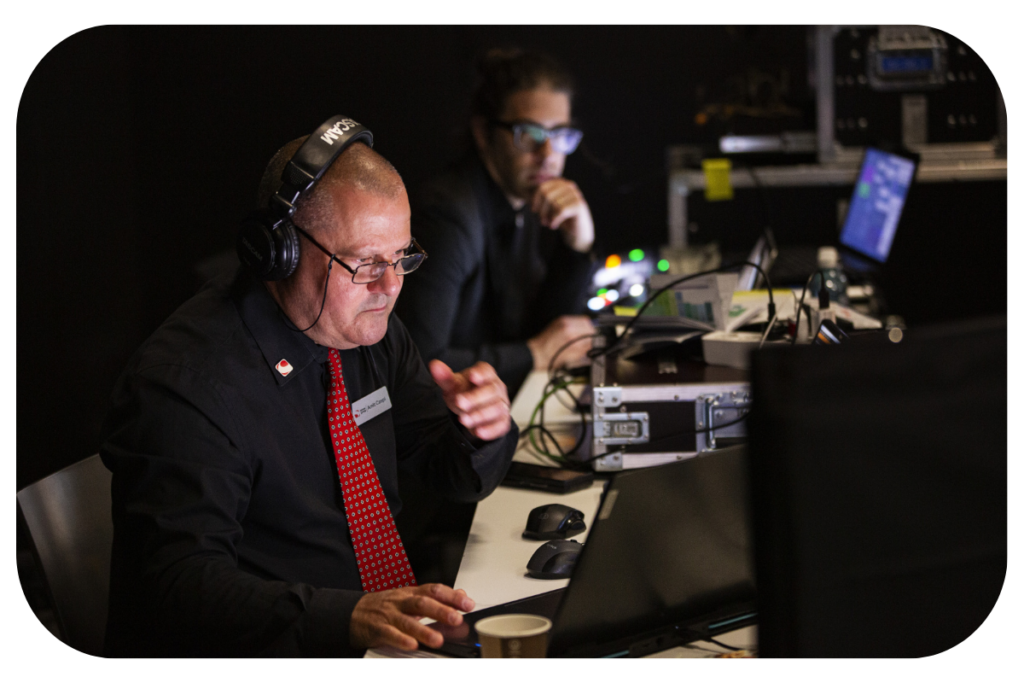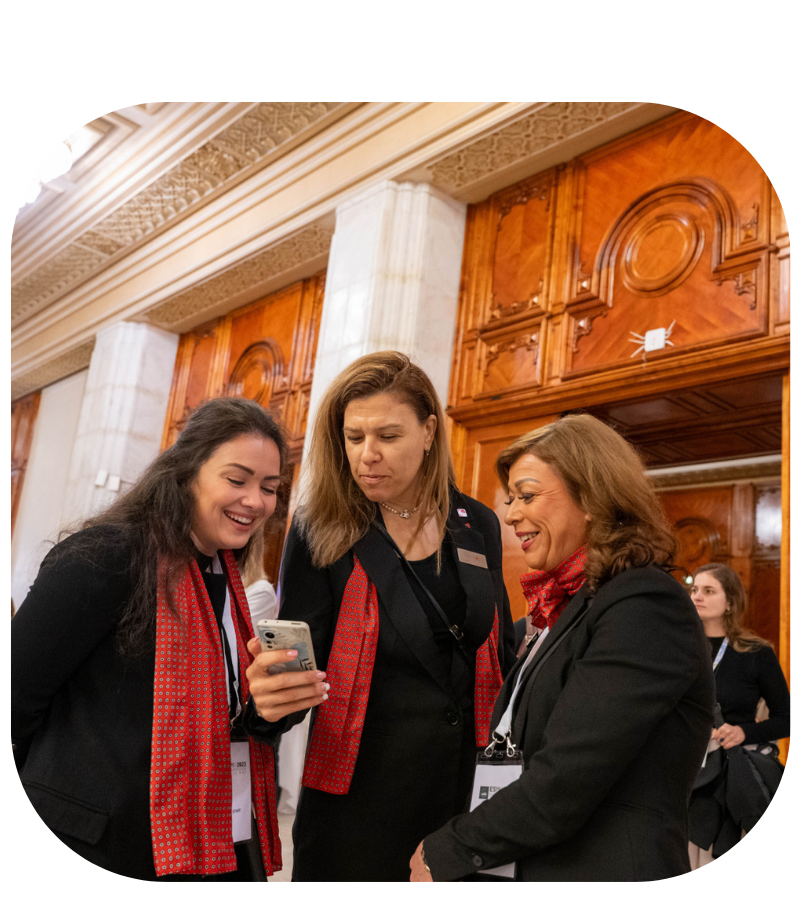
A marketing manager opens her campaign dashboard Monday morning and finds AI-generated insights waiting: which email subject lines drove registrations, which audience segments are engaging but not converting, and where to reallocate ad spend. Across town, another marketer uses AI to draft social posts and session summaries in minutes rather than hours. A third team analyses years of registration data in real time, identifying exactly when different attendee segments register and what content resonates most. Across the globe, a conference attendee listens to an AI-powered podcast that previews the day’s most important themes and adapts to the topics he follows most closely.
This is event marketing in 2025. AI has moved beyond automating a few emails to fundamentally reshaping how marketing teams strategise, create, analyse, and engage audiences. For organisations still relying on manual processes and instinct, the gap is widening fast.
Where AI Transforms Marketing Team Performance
Through implementing AI across major international congresses, we’ve identified five areas where the technology delivers immediate, measurable impact for marketing teams.

AI-Powered Session Summaries: Content That Keeps Working
One of marketing’s biggest challenges is extending content value beyond the event itself. AI-generated session summaries solve this elegantly. Within minutes of a presentation ending, attendees receive clear, accurate summaries they can share with colleagues. For marketing teams, this creates multiple opportunities: post-event engagement campaigns, content for social media and newsletters, and valuable materials that keep attendees connected to your brand long after the congress ends.
These summaries are strategic marketing assets that demonstrate value to potential future attendees, provide concrete examples of congress quality, and create ongoing touchpoints with your audience throughout the year.
AI Podcasts: Expanding Content Reach
AI-powered podcasts transform how marketing teams extend event reach and engagement. Before the event, AI can generate preview episodes highlighting key themes and featured speakers. During the event, teams can produce daily recap podcasts that help remote audiences stay connected. After the event has ended, content can be repurposed into podcast series that maintain engagement and attract new audiences.
The production speed is game-changing. What once required recording studios, editing time, and significant production budgets now happens in hours with minimal resources. Marketing teams can experiment with different formats, topics, and audience segments without major financial risk, discovering what resonates.
Accelerating Content Creation and Website Management
Event marketing involves relentless content demands: emails, social posts, landing pages, blog articles, speaker announcements, program descriptions, and more. AI has become essential for managing this volume.
AI assists marketing teams by generating first drafts that humans refine with strategic messaging and brand voice. A social media series that took two hours now takes thirty minutes. Landing page copy that required a full morning gets drafted in minutes. Website content updates that once bottlenecked on a single copywriter now move at the speed of the marketing calendar.
For website management specifically, AI helps teams build and maintain event sites with greater speed and consistency. It accelerates page creation, improves content structure, suggests clearer wording, and helps organise complex information.
Critically, AI supports rather than replaces marketing expertise. Teams still own strategy, brand positioning, and final decisions. AI simply removes the friction of blank pages and repetitive drafting work.
Data Analysis: From Reactive to Proactive Marketing
Traditional marketing analysis meant manually reviewing spreadsheets weeks after campaigns concluded, trying to piece together what worked. AI-powered analytics change this entirely.
Modern AI platforms integrate data from registration systems, email platforms, website behaviour, and social media, then surface actionable insights in real time. Marketing teams instantly see which messages drive actual conversions, which audience segments need different approaches, when specific groups typically register, and where budget reallocation could improve ROI.
The impact extends beyond speed. AI reveals patterns human analysts simply can’t process at scale, like subtle correlations between touchpoints, optimal email timing by audience segment, and content topics that predict registration likelihood. Teams move from educated guesses to data-driven decisions, adjusting campaigns while they’re running rather than learning lessons for next year.
Content Personalisation: Reaching the Right Audience
Generic mass communications no longer drive meaningful engagement. AI enables sophisticated personalisation based on behavioural patterns, past attendance, content preferences, and professional roles that would be impossible to track manually.
You can now create campaigns where different audience segments receive fundamentally different messaging, timing, and content. A first-time attendee receives an entirely different email sequence than a returning delegate. An academic researcher sees different programming highlights than an industry professional. Website content adapts based on user behaviour, showing relevant sessions and topics automatically.
AI makes it accessible to teams of any size, dramatically improving conversion rates and attendee satisfaction.
Building Your Approach
Start with one or two clear marketing pain points. Test AI tools that address those specific challenges. Gather team feedback, measure real impact on efficiency and results, then scale gradually.
- Don’t chase every new AI tool.
- Focus on solving actual problems.
- Train your team properly.
- Maintain human oversight on strategy, brand voice, and creative direction.
- Iterate constantly. No AI implementation works perfectly immediately.
Most importantly, remember that AI amplifies marketing judgment rather than replacing it. The technology handles repetitive tasks, data processing, and first drafts. Humans provide strategic thinking, creative direction, and the understanding of audience needs that no algorithm can replicate.
Looking Ahead

AI-ready event marketing creates teams that are more strategic, more data-driven, and more creatively productive. Marketing professionals spend less time on repetitive tasks and more time on high-value strategy and campaigns that genuinely engage audiences.
But these advances only create value for organisations that build the foundation: integrated data systems, workflows designed for human-AI collaboration, and leadership that embraces experimentation while maintaining focus on measurable outcomes.
The technology exists today. The competitive advantage goes to organisations willing to invest in infrastructure, commit to change, and maintain focus on marketing excellence rather than technological novelty.
The question isn’t whether AI will reshape event marketing. It’s whether your team will lead or follow.